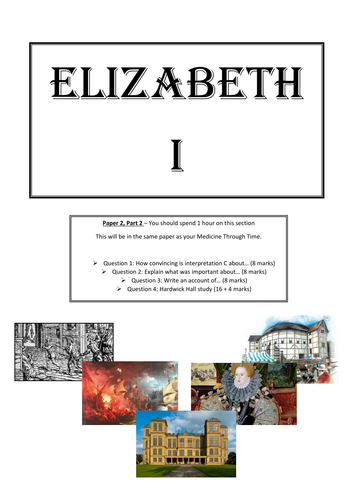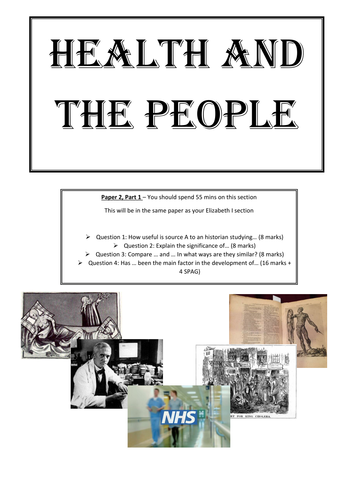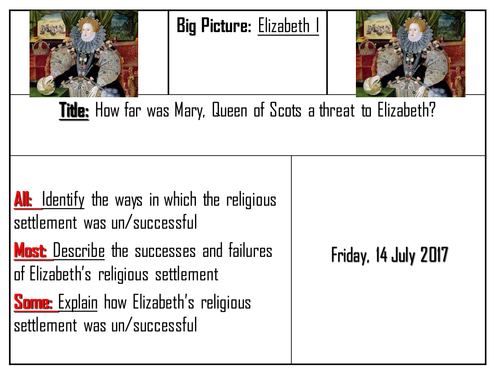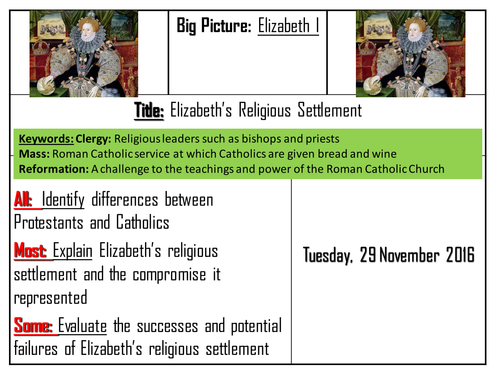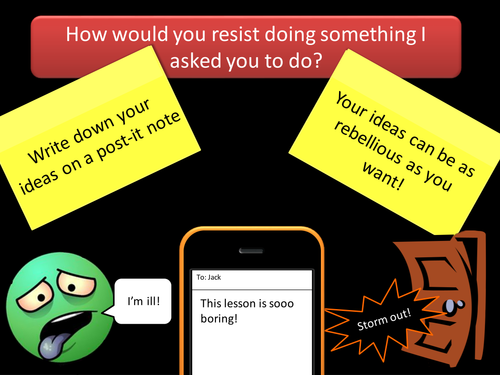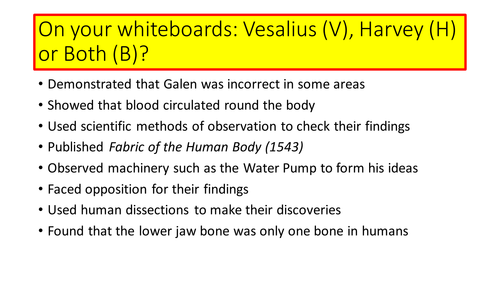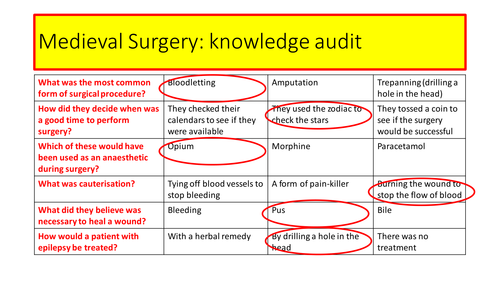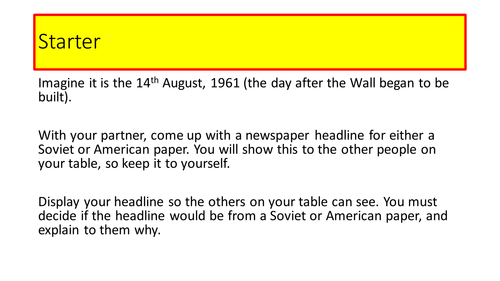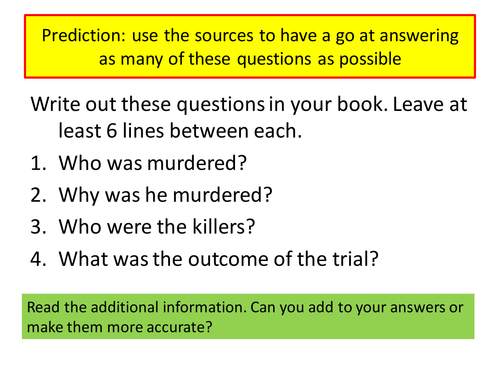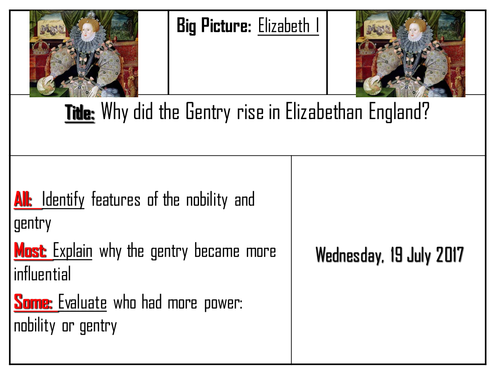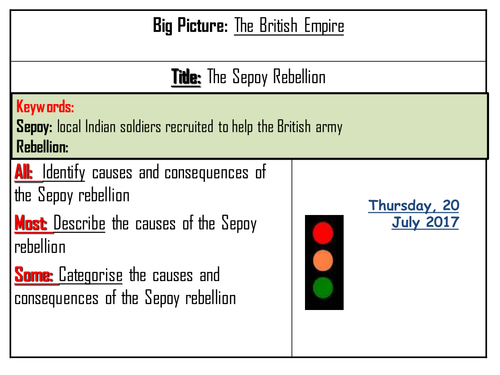
170Uploads
40k+Views
18k+Downloads

Italy and Fascism - Growth of Fascism
An A-level lesson in which students analyse the reasons for growing support for fascism in the post-war years. Students will analyse the reasons why different groups within Italy supported Mussolini and the fascists and examine how support grew over time.

AQA 8145 Elizabeth I - How did Elizabeth become Queen?
An introductory lesson looking at Elizabeth's early life. Students will gain and understanding of her background and how that influenced her as a leader.

AQA 8145 Elizabeth I - Puritan threats
A GCSE lesson in which students will gain an understanding of the threat posed by Puritans to Elizabeth's religious settlement. Students will evaluate the extent to which puritans posed a threat to Elizabeth's rule.

AQA 8145 Elizabeth I - How was Mary, Queen of Scots, a threat to Elizabeth?
A GCSE lesson in which students examine the plots against Elizabeth that Mary, QofS was involved in. Students will reach a judgement on the severity of the threat posed by Mary, QofS. Students will apply their understanding of this topic to an 8 mark 'write an account' question.

AQA 8145 Elizabeth I - Execution of Mary, Queen of Scots
A GCSE lesson in which students will examine the arguments for and against the execution of Mary, QofS. Students will ultimately decide if they agreed with Elizabeth's decision. Students will explicitly consider the consequences of Elizabeth's decision, therefore linking to the 'explain what was important' 8 mark question in which students need to explain the consequences.
Bundle

AQA 8145 - Elizabeth I Revision
Includes a revision guide and two revision lessons around the topic of religious threats. These lessons reference pages from the revision guide, and so work well as a whole unit.

AQA 8145 GCSE Elizabeth I Revision Guide
A revision guide tailored to the AQA Elizabeth I specification for GCSE. Includes practice questions, quizzes. The information is broken down to make it easier for students to use in their own revision, and pictures and acronyms will help students to recall the information ready for their GCSE exam.

AQA 8145 Germany - Terror and the Police State
A GCSE lesson for the AQA specification on the topic of 'Democracy and Dictatorship'. This lesson works best having already studied propaganda in the Nazi state. The lesson covers the 4 major aspects of the nazi police state, and requires students to evaluate their effectiveness in helping Hitler to keep control over Germany.
Bundle

AQA 8145 Germany - Kaiser Wilhelm
A 3 lesson series for the AQA specification at GCSE on 'Democracy and Dictatorship'. These lessons cover the first part of the course on Kaiser Wilhelm.

AQA 8145 Elizabeth - Religious Threats from Abroad
A GCSE lesson examining the religious threats faced by Elizabeth from abroad. Students will begin to analyse the success of the religious settlement in preventing threats. Should be taught after threats at home.

AQA 8145 Elizabeth - 1558 Religious Settlement
A GCSE lesson introducing Elizabeth's religious settlement before studying religious threats to Elizabeth's throne. Students will understand the reasons for the religious settlement and the reasons why some people were still unhappy.

Slavery - Slave resistance
A KS3 lesson in which students understand and evaluate the methods of resistance used by slaves on plantations. Students will have to prioritise the methods according to different criteria to gain an understanding.

AQA 8145 Medicine - Pare and Surgery
A differentiated GCSE lesson in which students will understand the contributions of Paré to surgical developments before completing an 8 mark 'how useful' GCSE style question. This includes differentiated worksheets to help all students meet the exam requirements.

AQA 8145 Medicine - Renaissance Anatomy: Vesalius and Harvey
A GCSE lesson in which students will understand how and why developments were made in anatomical understanding during the renaissance period. Students will consider the significance of the contributions made by Vesalius and by Harvey. They will also consider the factors which contributed to these developments in preparation for 16 mark questions.

AQA 8145 Conflict and Tension: Cold War 1945-1972 - Impact of the Berlin Wall
A GCSE lesson in which students explore the impact of the Berlin Wall. Includes structured work towards two exam style questions for the new AQA specification. Students will be required to consider the extent to which the wall increased or reduced tensions between the USA and the USSR, and consider which side the wall was a victory for.

Civil Rights Movement - Montgomery Bus Boycotts
A lesson in which students consider the significance of the Montgomery Bus Boycotts. Students will sort statements in to the causes, events and consequences before considering who the most important figure in the bus boycotts was.

Civil rights Movement - Emmett Till
A lesson in which students examine the significance of the murder of Emmett Till in the Civil Rights Movement. Students will analyse long and short term significance, linking to an AQA GCSE 8 mark style question on significance.

British Empire: to be proud of?
A KS3 lesson in which students consider different interpretations of the British Empire before reaching their own judgement the key question. Students will use character cards to explore why interpretations of the Empire may differ.

AQA 8145 Elizabeth I - Rise of the Gentry
A GCSE lesson in which students study the 'Great Chain of Being' and its impact on Elizabethan Society. Students will explain the causes of the rise of the gentry, and consider how this group was different from the nobility.

British Empire - Sepoy Rebellion
A KS3 lesson in which students will consider the causes, events and consequences of the Sepoy rebellion. Students will categorise the causes in to long and short term causes and the trigger.

